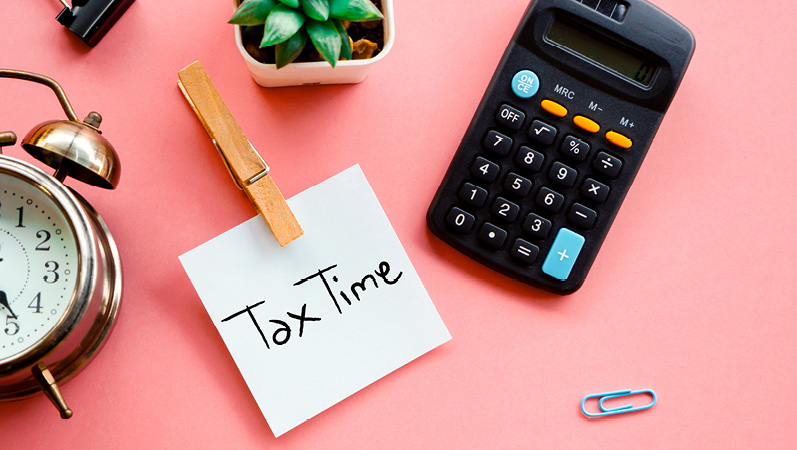Property Taxes | Understanding Your Colorado Tax Bill
With the increases in home values, property taxes in Denver are going up. But more importantly, the taxes you pay can vary dramatically depending on what county and/or what city or village you live in.
Property taxes are an expense you will continue to pay every year for as long as you own your home, even after your mortgage is paid off. When it comes time to sell your home, the tax bill will be a key consideration for most buyers when deciding whether to purchase your property.
For these reasons, it’s important to understand how property taxes work and whether you’ll be getting appropriate benefits vs. cost when you buy in a particular area.
According to the the City and County of Denver’s Assessment Division, over 222,000 residential and commercial properties were evaluated in 2019. Assessments are done every two years so properties will re-apprasied this year. This chart shows the home appreciation by neighborhood in Denver, and you can see many homes had double-digit appreciation. Multi-family residential property also reflects similar market activity hefty increases in value.
Commercial properties are experiencing an increase as well, with a median projected value of 31 percent. These increases in commercial valuation are similarly reflected in each of the major subclasses including offices, retail, warehouses and lodging.
With the explosion of home sales in 2020, rising prices of single-family homes and continued demand, it will be interesting to see how this year’s valuations play out. Prior to COVID-19, it was anticipated that home values would start to moderate but now it’s hard to tell what the future holds for Denver property owners and the tax that will pay.
Understanding the Calculation of Property Tax Bills
Your property tax bill is based on the assessed value of your property, not the market value. The assessor multiplies your home’s market value by a percentage called the assessment rate to arrive at the number on which your taxes will be based. Colorado counties reassess property values every two years; in many states, annual assessments are common. In the greater Denver area, assessed value is lower than market value; the assessment rate is 7.2%.
The assessed value of your home, which determines your property tax bill, is based on its market value. Factors such as location, size, construction type, age, amenities, and lot size all play a crucial role in this calculation. Your property’s assessed value then gets multiplied by the property tax rate (also called the mill rate or multiplier; a mill is $1 for every $1,000 of assessed value) to arrive at the dollar amount you owe in taxes.
Here’s an example of exactly how it works. In Denver City and County, residential property tax bill calculations are based on four components: actual value, exempt amount, assessment rate (7.2%), and mill rate (.077365 for 2018 taxes). The formula looks like this:
(Market Value – Exemption) x Assessment Rate x Millage = Property Tax
So if your home’s market value is $500,000, and you have no exemptions, its assessed value will be $36,000 (7.2% of $500,000) and that number will be multiplied by the mill rate (0.077365) to arrive at your property tax bill: $2,785.14.
You’ll be able to pay this bill in two installments if you wish. If you have an escrow account, your mortgage servicer will collect 1/12 of your property tax bill each month, then submit the money to the tax collector before it’s due.
So if your home’s market value is $500,000, and you have no exemptions, its assessed value will be $36,000 (7.2% of $500,000) and that number will be multiplied by the mill rate (0.077365) to arrive at your property tax bill: $2,785.14.
What Determines Property Tax Rates?
The property tax rate is shaped by the expenses involved in financing local services and the particular services that tax revenue supports. In the City and County of Denver, for example, property taxes pay for the following:
- public schools
- affordable housing
- capital improvements and maintenance
- community planning and development
- the city attorney
- economic development
- financing for public buildings
- city council
- the mayor’s office
- public health
- animal protection
- independently elected agencies (auditor, clerk and recorder, district attorney)
- city services including energy management and facilities management
- parks and libraries
- recreation centers and programs
- public safety services such as 911 emergency services, police and fire
- public works such as street maintenance and solid waste disposal
- social services such as the Department of Human Services
- technology services
Check your Tax Bill
Denver residents can get an idea of exactly how their tax bill breaks down using the Balancing Act tool. If you qualify for any exemptions, your property tax bill will be a bit lower. In Denver, for example, qualifying senior citizens and their surviving spouses may benefit from the senior property tax exemption.
Among major US cities, Denver has one of the lowest residential property tax rates. Here are what the rates look like in Denver and the surrounding counties.
Property Tax Rates by County, Denver Metropolitan Area:
| County | Average Tax Rate | Annual Tax Bill
(For assessed home value of $250,000) |
Annual Tax Bill
(For assessed home value of $500,000) |
| Adams | .810 | $2025 | $4,050 |
| Arapahoe | .670 | $1,675 | $3,350 |
| Broomfield | .730 | $1,825 | $3,650 |
| Boulder | .570 | $1,425 | $2,850 |
| Denver | .540 | $1,350 | $2,750 |
| Douglas | .760 | $1,900 | $3,800 |
| Jefferson | .700 | $1,750 | $3,500 |
Source: Taxrates.org
Rates can vary significantly from one county to the next, and those differences can really add up over time.
Let’s say your friend owns a $500,000 home in Denver County and pay $2,850 a year in taxes. Over 15 years, that amounts to $42,750 (rates won’t really stay flat for 15 years, but let’s keep this example simple). Now, let’s say your friend owns a $500,000 home in Adams County. She’ll pay $60,750 in taxes on a home with the same value over the same 15 years. Is she receiving an additional $18,000 in value from those extra taxes compared to Denver County?
Know your Numbers
Understanding the specifics of what your property taxes encompass is essential. For example, a homeowner in the valued real estate area of Cherry Hills Village pays significantly more than the Arapahoe County base rate of 0.67 percent. Living in the Cherry Creek School District comes with a higher price tag and additional charges on the property tax bill—village taxes, fire bonds, South Metro Fire Protection District, and Urban Drainage and Flood—all of which significantly increase the tax bill.
“Know what your taxes are going towards, and if you agree with the budget then, as a homeowner, you will see value in the higher rates,” said Jenny Usaj, managing broker and owner of Usaj Realty.
Still, Colorado homeowners carry the third-lowest effective property tax rate of any state, only 0.51 percent versus over 1 percent nationally, according to a tax survey from ATTOM Data Solution. In New Jersey, one of the most burdened states for property taxes, Gloucester County homeowners pay $7,073 on average for a $209,999 home (3.37% tax rate).
The Bottom Line
Although assessed value differs from market value, the latter influences the former. As a result, many homeowners will face higher property tax bills due to Denver’s hot real estate market. Last November, Colorado voters voted to repeal the long-standing Gallagher Amendment, which limited property tax increases.
Homeowners who feel their property’s assessed value is unjustified can appeal it; appeals are granted about half the time in Denver, Adams, Arapahoe, and Jefferson Counties. Look at the assessed values of comparable homes to see if you have a case.
Understanding how property taxes are calculated and what they pay for is important when deciding where to buy and when to sell your home. Do you think there’s value in the areas that charge more for property taxes, or do you think the rates in Denver are a bargain? Let us know in the comments!
(Editor’s note: This blog was previously published in January of 2020. It has been edited and updated to provide current information).




